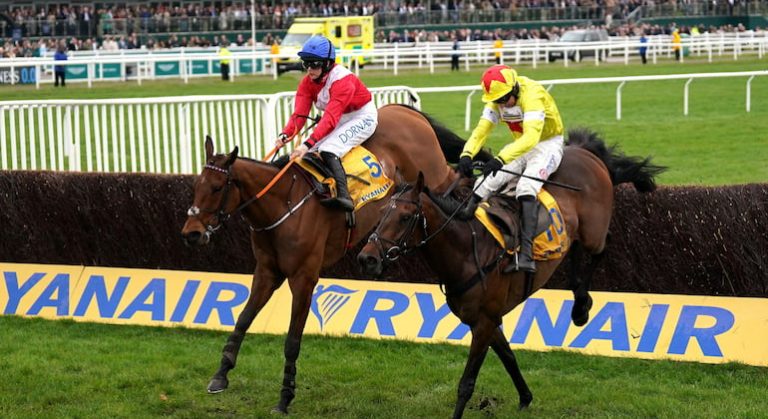Horse Racing Tips
How Weather Affects Horse Racing

Like with all outdoor sports, jockeys must consider the weather, as it can affect the horse, themselves, and the ground conditions.
Horse racing can take place on several types of surfaces, including grass, sand, and dirt tracks. There are also many courses that are synthetic or semi-synthetic, to enable racing to become a year-round sport.
Hot and dry weather causes the ground to become hard, while rain makes it soft, and cold temperatures and gusts of wind also make horse riding problematic. Jockeys need to take special care of both themselves and their horses, depending on the varying weather conditions.
Heat and humidity
You would think that horse racing in the UK would be free from the pitfalls of hot and humid weather, but that is not the case! In April 2018, a race was abandoned at Cheltenham due to soaring temperatures hitting as high as 26°C.
However, on the (rare) days that the sun is shining and the temperature is high, the ground is usually firmer, making it easier to race on. Therefore, flat races tend to be held over the summer months; as dirt tracks are fastest when surfaces are firm. The exception to this is turf courses – warm weather makes it difficult for horses since there’s less ‘give’ under their hooves.
Due to their large body size, high proportion of active muscle, and reliance upon evaporation to cool down through sweating, horses are more vulnerable to hot weather.
Jockeys should soak their horse’s hay and give them access to plenty of water before a race. Once the race has finished, they should cool their horse off by covering them in cold water with either a hose or sponge.
During the race, it is recommended that jockeys wear gloves as if their horse sweats, the reins can become slippery and harder to handle.
Rain
For races in the UK, rain is always on the cards! The Grand National takes place in April every year when the average monthly rainfall in Liverpool is 9 days. It is a similar situation with the Epsom Derby in June; with 7 days of rain a month making it likely that jockeys will have to race in wet conditions.
The Grand National in 2001 was especially soggy. Only four of the forty horses finished the race as the rain bucketed down, making it one of the most testing meetings the race has seen.
The rain can have a huge impact on the ground conditions for horse racing. The more moisture there is in the ground, the softer ‘the going’ is. When the ground is softer, it helps to soften the horse’s impact, which is preferable for hurdles and steeplechases.
Depending on the track used, mud can also be a problem for both the horses and the jockeys. With mud flying off the hooves of horses in front, jockeys have to keep their horse’s visibility in mind and monitor the horse’s responses carefully. Mud kicked up can also get stuck on jockeys’ goggles, making it more difficult for them to see.
Wind
While gusts of wind do not affect the ground conditions for a race, it can be a challenge for both the horse and the jockey.
If strong winds are blowing down the stretch, it can be especially difficult for horses in the lead, as the wind will be directly in their faces, whereas the horses behind them will be shielded, and won’t need to put in quite as much effort.
If there is a tailwind up the backstretch however, this could be beneficial to horses who are at the back of the race and want to swing out to overtake, as the wind can help to push them along.
However, strong winds can often cause horses to tire out much more quickly, as they need to use more energy than they typically would.
In 2008, Cheltenham Festival experienced winds of nearly 50mph and suffered structural damage, and all midweek races were postponed when forecasts predicted even more powerful gusts were on their way. The decision was made with crowd safety in mind, as much as anything else.
Freezing temperatures
The 2013 Grand National was one of the coldest, with temperatures dipping at 10°C, with the wind making it feel much colder. To keep warm, some jockeys would go for a jog before their race, and drunk hot tea to keep their heat levels up.
To minimise their weight whilst riding, jockeys often forego thick clothing, for light, skin-tight, breathable fabrics instead.
Horses are affected by the cold as well, some finding it difficult to withstand low temperatures – especially if combined with rain. Their ability to tolerate the cold depends on several factors, such as their health, metabolism, nutritional intake, and hair coat condition.
Before a race, jockeys will blanket their horses to help keep them as warm as possible, as well as taking them through a pre-race warm up routine to ensure their muscles have not stiffened up.
After a period of cold weather in April 2018, figures showed it to be the worst hit year in almost a decade for fixture cancellations in Britain, with 60 horse races abandoned.







